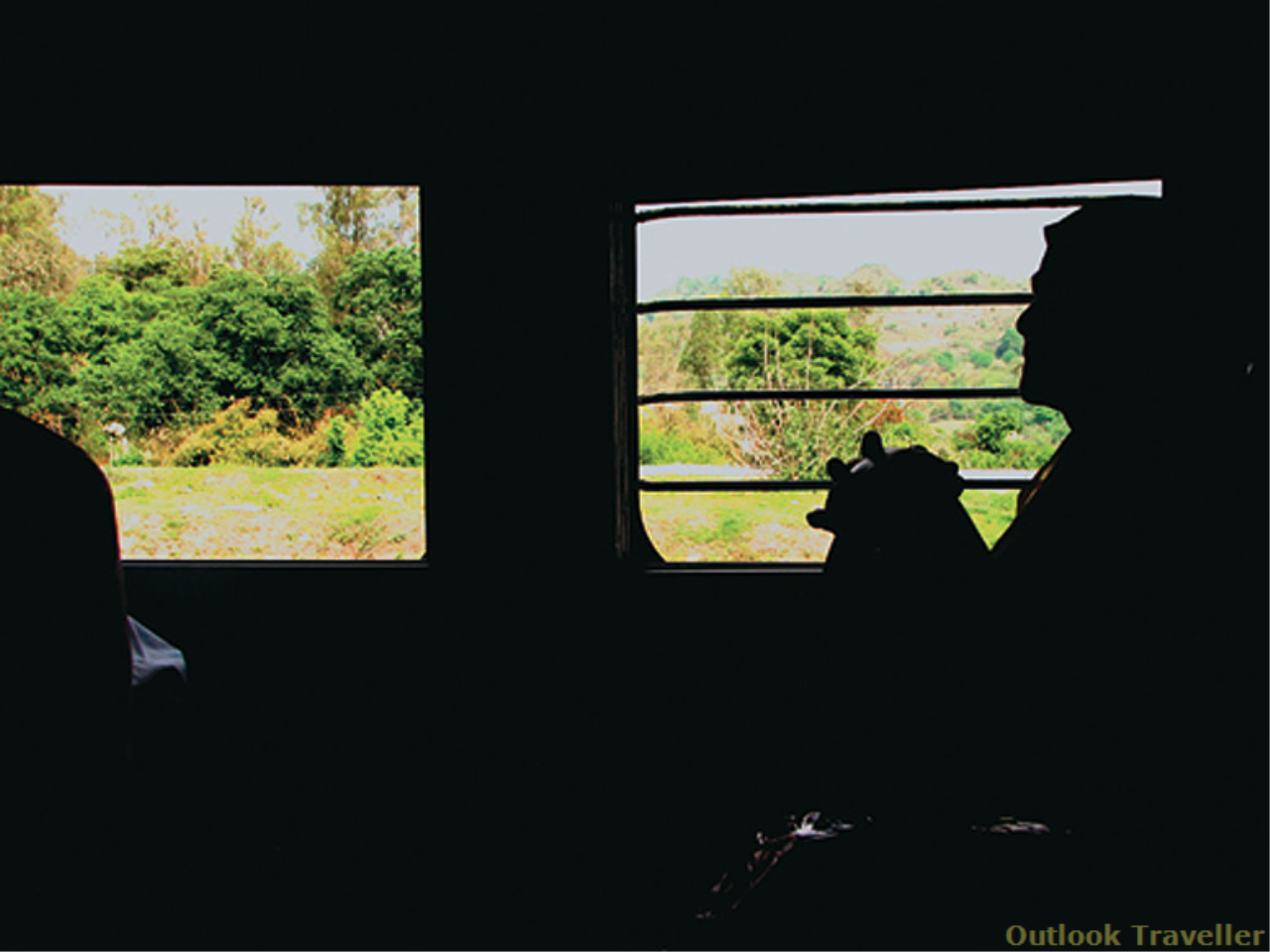She wouldn’t get on board. She stepped in and then stepped back. Beads of cold
“She would recognise a train, if she’d seen one,” boomed a voice behind me. A young Gujjar, clad in a chadar-kurti, clutching three milk cans, stood grinning. “She’s my sister. I’m taking her for a ride on the train. I know all about it, I’ve travelled by it a few times,” he pronounced authoritatively, ordering her to get in.
Balo, the Gujjar girl, who eventually made it inside the compartment, was not the only first-timer on board. The Jammu-Udhampur section has been operational for two years (on completion the 342km rail line will extend to Katra, Qazigund, Srinagar and Baramulla), but the train that runs its tracks is only eye candy for most. Like the post-graduate Dogra youth sitting beside me, who had come to Jammu for a job interview and decided to take the train on the return journey.
As for me, I had time on hand one afternoon while in Jammu, so instead of browsing through the bazaar near Raghunath Mandir for the nth time, looking at reams of Kashmiri embroidery, line-ups of cricket bats, piles of imported blankets and putting on calories tasting walnuts at every third shop, I found myself queuing up for a ticket on the 1.10pm Intercity. The 55km journey cost me a grand sum of Rs 11. The bus fare would have set me back by Rs 30, besides adding 64km to the journey. A kilo of the ‘finest quality’ shelled walnuts would have cost me Rs 320 at bargain price.
The train passes through Jammu city and the route is a virtual tour of the area’s tourist attractions like the Bahu Fort, Mubarak Mandi, Peer Kho, Har ki Pauri, Maha-Maya Mandir, Trikuta peak (Vaishno Devi), all of which come up in quick succession. The tranquil Tawi river gives the train company as it meanders in and out of tunnels, over suspension bridges, through barley fields, past meadows with grazing horses, alongside waterfalls and small brooks. The sky is a clear blue, and the journey is exhilarating. I catch fleeting glimpses of the snow-clad peaks of the Pir Panjal range. Some day soon a train will run in their shadows.
The only sign of activity during the one-and-a-half hour journey is when the train halts at four picturesque stations — Bajalta, Sangar, Manwal and Ramnagar — so squeaky clean that they seem like stage sets. Looking part of a different set are the armed security men who line the entire route and parade up and down the train. Try pulling your camera out and chances are that they’ll pounce on you.
The train does the Jammu-Udhampur return rail journey thrice a day. It’s packed to capacity with Gujjars — for whom selling milk and ghee in the region has become less tedious now (as Balo’s brother explained); mothers visiting married daughters; students; army personnel; and joy riders like me.
During the return journey from Udhampur I tried talking to Balo but she seemed anxious, and remained reticent. The relief on her face was unmistakable as the train chugged to a final stop at Jammu Tawi station and the crowds rose to disembark. “Did you enjoy the journey?” I asked her. She wavered, smiling bashfully, nodding a no, but then changing her mind to conclude with a yes. “What was the best part?” I prodded. For the first time she seemed excited, “When night would fall all of a sudden and then the day would begin once again.” She was referring to the 20 tunnels we had crossed en route (number 7 at 2.4km being the longest).
We’re aiming for Mission Moon. At the moment though, Mission Train seems to be just about getting on track in large parts of the country. Balo will vouch for that.
Currently there are two trains running on this route. The DMU departs Jammu at 7.45am, 1.10pm and 5.20pm and leaves from Udhampur at 10.30am and 2.40pm. The 2445 Uttar Sakranti Express leaves New Delhi at 8.35pm and gets to Udhampur the next day at 7.45am.
Leave a Reply
You must be logged in to post a comment.


